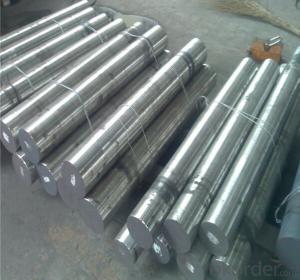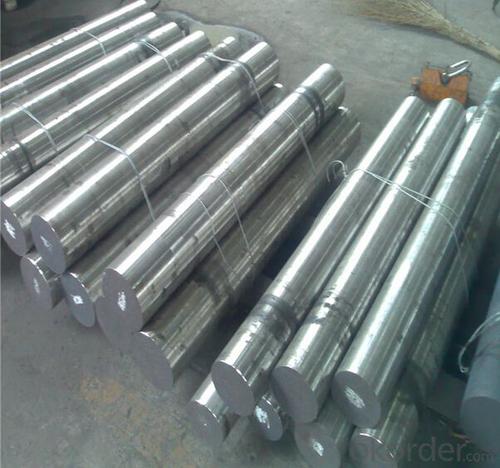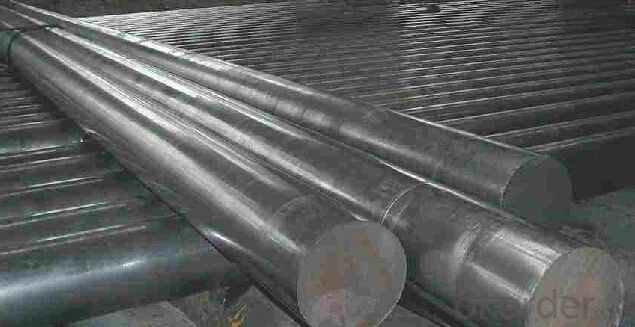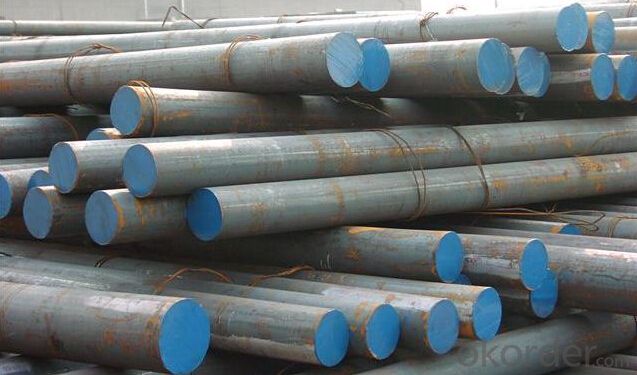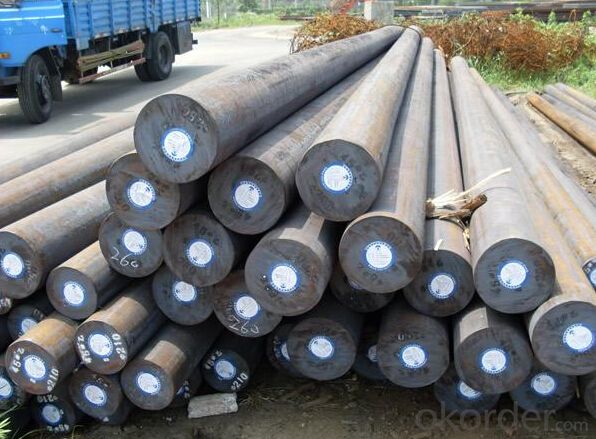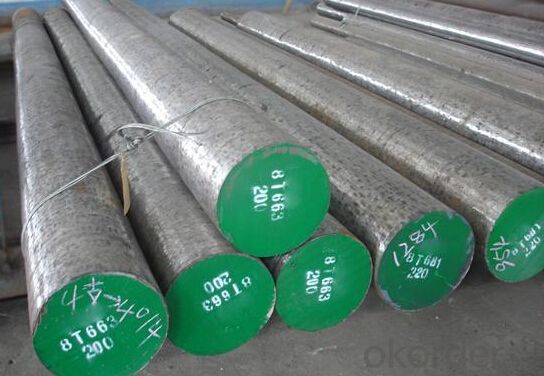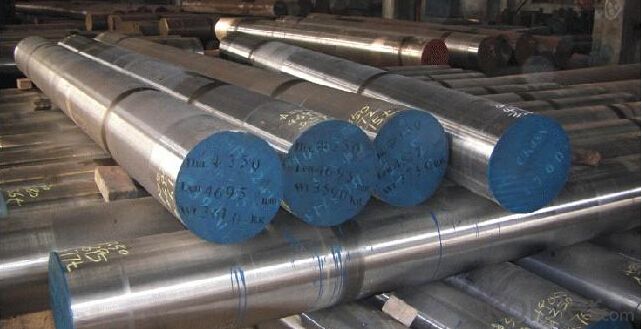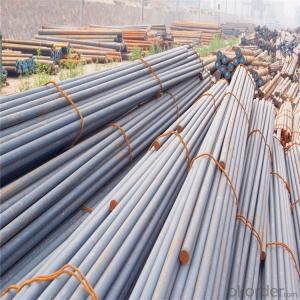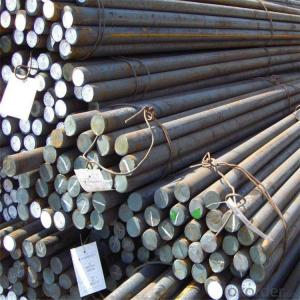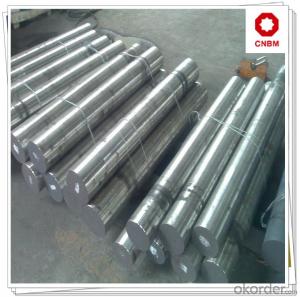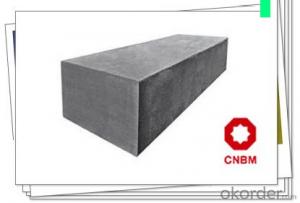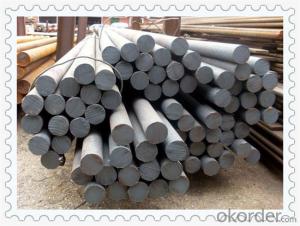AISI1020 SAE1020 round steel bars/SAE 1020 carbon structural steel
- Loading Port:
- Tianjin
- Payment Terms:
- TT OR LC
- Min Order Qty:
- 3 m.t.
- Supply Capability:
- 10000 m.t./month
OKorder Service Pledge
OKorder Financial Service
You Might Also Like
Specification
SAE1020 round steel bars/SAE 1020 carbon structural steel
Name | SAE1020 Carbon Steel Round Bar |
Shape | Round Bar/Square Bar/Flat Bar/Plate/Wire |
Standard | GB/ASTM/SAE/AISI/DIN/JIS/EN/BS |
Surface Treatment: | Black/Peeling/Polished/Machined |
Delivery Condition: | Hot Rolled or Forged/Peeled or Black Surface |
Test | SGS/UT 100% Elements Testing |
Certificate: | ISO/Mill Certificate |
Service: | 24 hours online service / |
more than 20 years trading and manufacture | |
Quality Assurance: | the third party inspection, such as SGS, BV, TUV…etc. is acceptable |
Packaging Details: | seaworthy packaging or as per customer's packing instruction |
Specification
Grade | SAE1020 AISI1020 ASTM1020 S20C S20CB C20 CK22 S22C |
Processing | EAF+LF+(VD) |
Commodity | steel round bar/round steel bar/round bar steel |
Technique | hot rolled |
Diameter | 10-310mm |
Length | can be required to 3-12m |
Sizes tolerance | length: +/-100mm,straightless:3mm/m |
Application | 1) General service industries (petroleum, food, chemical, paper, fertilizer, Fabric, aviation and nuclear) |
2) Fluid, gas and oil transport | |
3) Pressure and heat transmission | |
4) Construction and ornament | |
5) Boiler heat exchangers | |
Chemical Composition | C:0.17-0.23,Si:0.17-0.37,Mn:0.35-0.65, |
Machanical Properties | Tensile Strength(Mpa):410,Yield Strength(Mpa):245,Elongation:16,Shrinkage:55,elongation:25 |
Quality Condition | 1): Straightness: 3mm/m (max) |
2): Corner Radius: 3(max) | |
3): The ends will be end cut or gas cut | |
4): No cracks on the surface | |
Packing | 1): Paint oil on the surface to protect steel bars from rusting. |
2): Bundle packing by Iron Strips. | |
3): Bundle weight is from 2mt to 3 mt. | |
4): Two or three tags will be attached on each bundle. | |
MOQ | 5 tons for each sizes |
Packaging & Delivery
Packaging Detail | Sea worthy packing /as per customer's packing instruction |
Delivery Detail | 15 ~ 40 days after receiving the deposit |
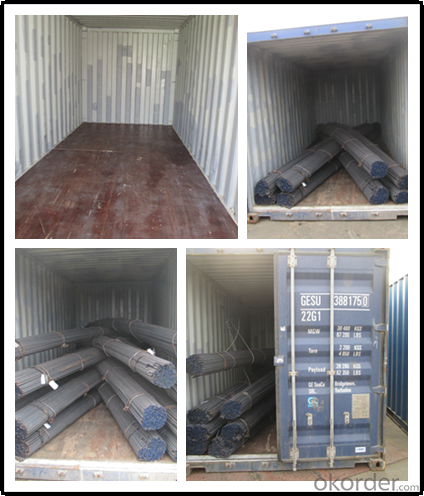
Product Show
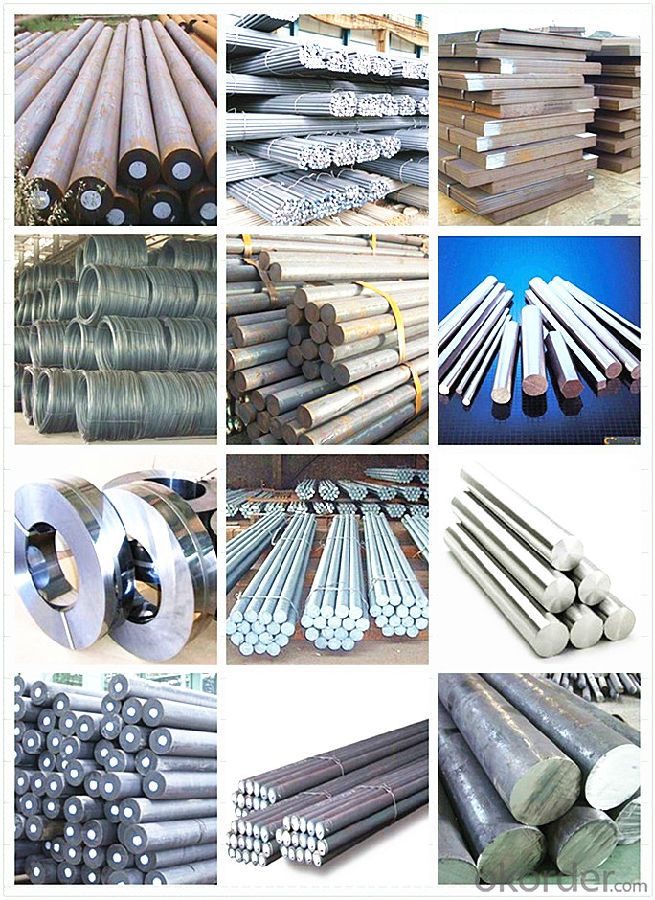
Workshop
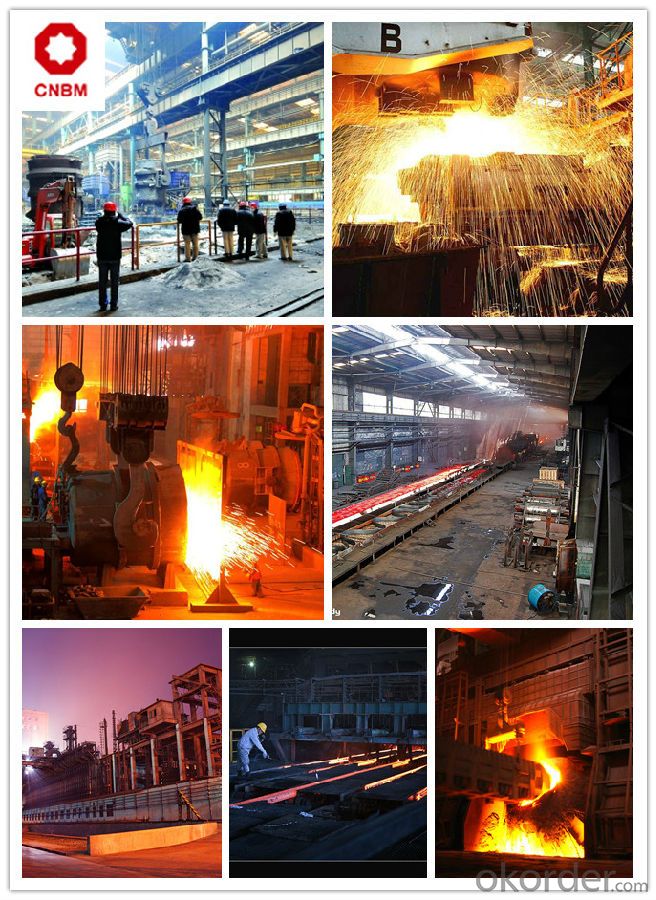
FAQ
Are you a trading company or manufacturer? | Manufacturer |
What’s the MOQ? | 3 metric ton |
What’s your delivery time? | 15-35 days after downpayment received |
Do you Accept OEM service? | Yes |
what’s your delivery terms? | FOB/CFR/CIF |
What's the Payment Terms? | 30% as deposit,70% before shipment by T/T |
Western Union acceptable for small amount. | |
L/C acceptable for large amount. | |
Scrow ,Paybal,Alipay are also ok | |
Why choose us? | Chose happens because of quality, then price, We can give you both. |
Additionally, we can also offer professional products inquiry, products knowledge train (for agents), smooth goods delivery, excellent customer solution proposals. | |
What's your available port of Shipment? | Main Port, China |
What’s your featured services? | Our service formula: good quality+ good price+ good service=customer's trust |
Where are your Market? | Covering more than 160 countries in the world |
- Q: What are the applications of special steel in the food processing industry?
- Special steel has a wide range of applications in the food processing industry due to its unique properties and characteristics. One of the main applications of special steel in this industry is in the manufacturing of equipment and machinery used in food processing plants. Special steel is highly resistant to corrosion and can withstand extreme temperatures, making it ideal for use in food processing equipment that needs to be sanitized frequently and operate in harsh conditions. Special steel is commonly used in the production of blades, knives, and cutting tools used in food processing. The high strength and durability of special steel allow these tools to maintain their sharpness and effectiveness even after prolonged use, ensuring efficient and precise cutting of food products. Another application of special steel in the food processing industry is in the construction of storage tanks and containers. These tanks are used to store and transport various food products, and special steel's corrosion resistance and hygiene properties prevent contamination and ensure the quality and safety of the stored food. Additionally, special steel is also utilized in the construction of processing machinery such as mixers, grinders, and extruders. Its high strength and stability enable these machines to handle the rigorous demands of food processing, ensuring smooth operation and minimizing downtime. Furthermore, special steel is often employed in the production of conveyor systems used in food processing facilities. These conveyors are responsible for moving food products along the processing line, and special steel's resistance to wear and tear means that the conveyor systems can operate efficiently and reliably, reducing the risk of product contamination. In summary, the applications of special steel in the food processing industry are extensive and crucial. From manufacturing equipment to construction and storage, special steel's unique properties play a vital role in ensuring the efficiency, safety, and quality of food processing operations.
- Q: How does special steel perform in extreme weather conditions?
- Special steel is specifically designed to have enhanced performance in extreme weather conditions. It exhibits exceptional strength, durability, and resistance to corrosion, making it highly suitable for withstanding harsh environments such as extreme heat, cold, humidity, and strong winds. Additionally, special steel maintains its mechanical properties and structural integrity even under extreme temperature variations, ensuring its reliability and longevity in adverse weather conditions.
- Q: How does special steel contribute to the agricultural sector?
- Special steel contributes to the agricultural sector in several ways. Firstly, special steel is known for its strength and durability, making it an ideal material for manufacturing various agricultural machinery and equipment. This includes tractors, plows, harvesters, and irrigation systems, among others. These machines require robust and reliable components that can withstand the demanding conditions of agricultural work, and special steel provides the necessary strength and resistance to wear and tear. Additionally, special steel can be used to produce high-quality cutting tools that are essential in farming operations. Implements such as sickles, scythes, and pruning shears need to have sharp and durable blades to efficiently cut through vegetation. Special steel's hardness and strength make it a suitable material for manufacturing these tools, ensuring they retain their sharpness even after prolonged use. Furthermore, special steel can contribute to the agricultural sector by enabling the construction of sturdy and durable infrastructure. Agricultural buildings, storage facilities, and fencing often require strong and corrosion-resistant materials to withstand the elements and protect crops, livestock, and equipment. Special steel, with its resistance to rust and structural integrity, can be used in the construction of barns, silos, sheds, and fencing, providing long-lasting and reliable structures. In conclusion, special steel plays a crucial role in the agricultural sector by providing the necessary strength, durability, and corrosion resistance required for the manufacturing of machinery, cutting tools, and infrastructure. Its properties contribute to improved efficiency, productivity, and reliability in agricultural operations, ultimately benefiting farmers and the overall agricultural industry.
- Q: How is electrical resistance steel used in heating elements?
- Electrical resistance steel is commonly used in heating elements due to its high resistivity and ability to withstand high temperatures. When an electric current passes through the steel, its resistance generates heat, allowing the heating element to efficiently convert electrical energy into heat energy. This makes it suitable for applications such as electric stoves, water heaters, and industrial furnaces.
- Q: Is special steel suitable for manufacturing molds and dies?
- Yes, special steel is highly suitable for manufacturing molds and dies. Special steel refers to a group of high-quality steels that possess exceptional properties such as high hardness, wear resistance, toughness, and excellent heat resistance. These characteristics make special steel an ideal choice for mold and die manufacturing. Molds and dies are critical components in various industries such as automotive, aerospace, electronics, and manufacturing. They are used to shape, form, and cut materials into desired shapes and sizes. Due to the repetitive and intense nature of their applications, molds and dies are subjected to high pressures, temperatures, and abrasive forces. Therefore, they need to be made from a material that can withstand these conditions while maintaining their dimensional stability and performance. Special steel, such as tool steel, is specifically designed to meet these requirements. It has a high hardness level, which enables it to resist wear and deformation, even under extreme conditions. This characteristic ensures that molds and dies made from special steel can maintain their shape and precision for a longer period, resulting in better product quality and reduced downtime for maintenance and replacement. Additionally, special steel offers excellent heat resistance, which is crucial for molds and dies used in high-temperature applications such as plastic injection molding or forging. It can withstand the thermal cycling and rapid heating and cooling associated with these processes without losing its mechanical properties or developing cracks or deformation. Moreover, special steel is known for its exceptional toughness, which is essential for molds and dies that are subjected to high pressures and impacts. It can absorb and distribute the applied forces, preventing premature failure and prolonging the lifespan of the molds and dies. In summary, special steel is highly suitable for manufacturing molds and dies due to its high hardness, wear resistance, toughness, and excellent heat resistance. Its exceptional properties ensure that molds and dies can withstand the demanding conditions of their applications, resulting in improved performance, longevity, and cost-effectiveness for manufacturers.
- Q: How are cobalt-based alloys used in dental applications?
- Cobalt-based alloys are commonly used in dental applications due to their high strength, corrosion resistance, and biocompatibility. These alloys are used in dental prosthetics, such as crowns, bridges, and dentures, to provide durability and stability. Additionally, cobalt-based alloys are often used in orthodontic appliances, implants, and surgical instruments due to their excellent mechanical properties and resistance to wear and deformation.
- Q: What are the challenges in machining special steel with high hardness?
- One of the major challenges in machining special steel with high hardness is the excessive tool wear. High hardness steel tends to be abrasive and causes rapid tool degradation, leading to frequent tool changes and increased production costs. Additionally, the high hardness makes it difficult to achieve precise cuts and maintain tight tolerances, affecting the overall quality of the machined parts. Another challenge is the generation of high cutting forces, which can strain the machine and potentially cause vibrations or distortions in the workpiece. Therefore, machining special steel with high hardness requires specialized tooling, advanced cutting strategies, and careful monitoring to overcome these challenges and achieve satisfactory results.
- Q: How does special steel contribute to the electrical conductivity of products?
- Special steel contributes to the electrical conductivity of products by offering high levels of purity and low levels of impurities. Its composition and manufacturing process ensure that it has excellent conductivity and minimal resistance, allowing for efficient flow of electric current.
- Q: What are the different corrosion-resistant special steel alloys?
- There are several corrosion-resistant special steel alloys that are commonly used in various industries. Some of the most popular ones include stainless steel, duplex stainless steel, super duplex stainless steel, and nickel-based alloys. Stainless steel is a widely used corrosion-resistant alloy that contains a minimum of 10.5% chromium. It forms a protective layer of chromium oxide on its surface, preventing further corrosion. Stainless steel is highly resistant to rust, staining, and pitting, making it suitable for applications in the food processing, chemical, and marine industries. Duplex stainless steel is a combination of both austenitic and ferritic stainless steels. It offers excellent resistance to corrosion, particularly in environments with high chloride ion concentrations. Duplex stainless steel is commonly used in the oil and gas, chemical, and desalination industries. Super duplex stainless steel is a higher strength version of duplex stainless steel. It offers enhanced corrosion resistance and mechanical properties, making it ideal for applications in harsh environments such as offshore oil and gas platforms, chemical processing plants, and seawater desalination systems. Nickel-based alloys, such as Inconel and Hastelloy, are known for their exceptional resistance to corrosion and high-temperature environments. These alloys are commonly used in industries such as aerospace, chemical processing, and power generation, where resistance to both corrosion and heat is critical. These corrosion-resistant special steel alloys provide various options for industries that require materials with excellent durability and resistance to corrosive environments. The choice of alloy depends on the specific application, operating conditions, and desired performance characteristics.
- Q: What is the purpose of cold drawing in special steel production?
- The purpose of cold drawing in special steel production is to improve the mechanical properties and dimensional accuracy of the steel. Cold drawing involves pulling the steel through a die at room temperature, which reduces the cross-sectional area and increases the length of the steel. This process helps to refine the microstructure of the steel, resulting in improved strength, hardness, and toughness. Additionally, cold drawing can enhance the surface finish and straightness of the steel, ensuring precise dimensions and making it suitable for various applications where high-quality steel is required. Overall, cold drawing plays a crucial role in enhancing the performance and quality of special steel, making it more reliable and efficient in various industrial sectors.
Send your message to us
AISI1020 SAE1020 round steel bars/SAE 1020 carbon structural steel
- Loading Port:
- Tianjin
- Payment Terms:
- TT OR LC
- Min Order Qty:
- 3 m.t.
- Supply Capability:
- 10000 m.t./month
OKorder Service Pledge
OKorder Financial Service
Similar products
Hot products
Hot Searches
Related keywords
